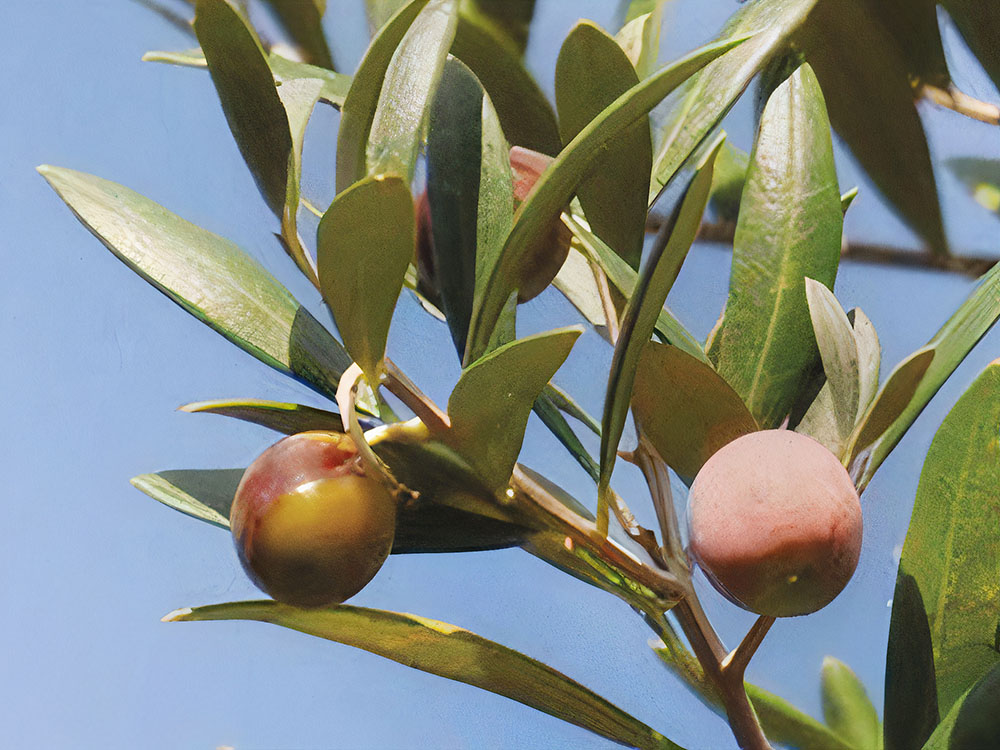The olive tree in folk proverbs
Issue 55

Imad bin Salih
University of Tunis
President of the Tazamort Association
Humans’ relationship with the olive tree was more than just a utilitarian one based on harvesting and squeezing its fruit for use in food, medicine and cosmetics. The olive tree acquired a spiritual and metaphorical significance, and the olive was revered by all peoples, civilisations and religions. Oral traditions and folk proverbs have immortalised the most beautiful imagery and the most amazing depictions of the olive tree in the collective memory. The subject of this study is the olive tree in folk proverbs in Tunisia and on the island of Djerba in particular.
While researching various aspects of the folk proverbs related to olives and their derivatives, I was delighted to discover linguistic richness, depth of meaning and rich metaphors and expression. The phrases and idiomatic expressions related to olives are not only classic Arabic terms in the collective culture that are only understood through their lexical meanings; they are used figuratively and symbolically on different occasions in a variety of Arab cultural environments, including nonstandard ones.
The speakers sometimes use these proverbs and idiomatic expressions metaphorically to support their arguments. Because of their expressive power, these proverbs and expressions found their way into modern Arabic dictionaries, colloquial works, and dictionaries of colloquial and borrowed words. They were then disseminated widely by linguists, writers, media professionals and the general public.
This study used the corpus of local and national proverbs, and I attempted to enrich it with similar examples from the Arab world's Maghreb and Mashreq countries. Their semantic and historical symbolic representations have been restored and they have gained new meanings over time, which are easier for the public to comprehend and reproduce.
In its form and content, the proverb is saved not only in the memory and social cultural heritage; as demonstrated with examples, its connotations are evolving. The use of the olive in proverbs and its symbolic connotation have evolved and contributed to the Arab community's expressive tools, forming an important component of the discourse.
On the basis of the above-mentioned, proverbs can be described as a compilation of local and human experiences and a compilation of a long experience for successive generations. In the classical language, “poetry is the Diwan of the Arabs” but, in folk culture, proverbs are the Diwan of Arabic prose and possibly the Diwan of all nations.



































































